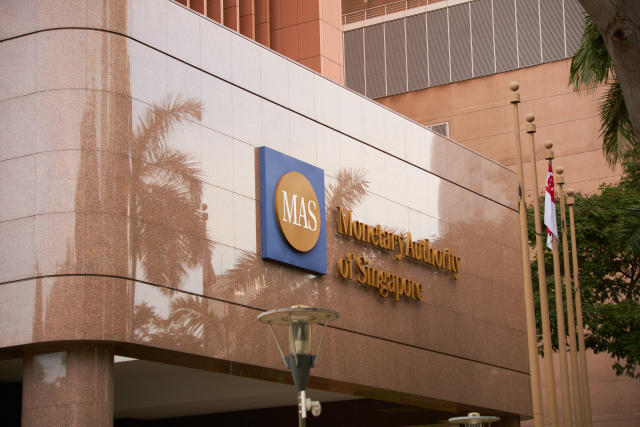Singapore’s monetary policy should remain tight until inflationary pressures recede: IMF
Visiting IMF economist says Singapore’s monetary and fiscal stances are appropriate, but flags risks arising from geopolitical conflicts, the tight labour market and China’s slowdown.
A team from the International Monetary Fund (IMF) has said at the close of its visit to Singapore that as the economy recovers amid gradual disinflation, the Republic’s monetary policy should remain tight until inflationary pressures recede.
IMF economist Masahiro Nozaki, who led the team in discussions in Singapore from May 7 to 16, said: “The current monetary policy stance is appropriately tight and geared towards continued disinflation. However, risks to inflation remain tilted to the upside.”
He highlighted that intensified geopolitical conflicts could increase volatility in global energy and food prices, and that the tight labour market and accumulated cost pressures from high wage growth in the past could lead to continued inflation stickiness.
“Once the envisaged disinflation is firmly in sight, monetary policy should be adjusted in a timely manner to address risks to price stability, continued to be guided by data and articulated through clearly communicated policy decisions,” he added.
IMF usually holds yearly talks with its members through a staff team that visits the country, collects economic and financial information, and discusses with officials the country’s economic developments and policies.
Nozaki, who is also mission chief and deputy division chief at the IMF, said Singapore’s growth gained momentum in the second half of 2023, following a moderation in the first half. This growth was supported by improved global demand for semiconductors and a rebound in tourism.
Labour market conditions eased last year amid weaker gross domestic product growth, he said. While nominal wage growth slowed in the fourth quarter of 2023, unemployment remained low.
The IMF team projects that Singapore’s GDP will recover to 2.1 per cent in 2024, from last year’s 1.1 per cent on the back of “continued recovery” in sectors such as manufacturing, tourism and consumer-facing services.
This projection keeps to the 2.1 per cent full-year growth projection that the IMF made in its World Economic Outlook 2024 report released in April.
Nozaki said that headline inflation and Monetary Authority of Singapore (MAS) core inflation are expected to moderate to 3 per cent this year. MAS core inflation is projected to stabilise at around 2 per cent by 2025.
External factors, such as a steeper-than-projected slowdown in China, a prolonged tight US monetary policy and deeper geo-economic fragmentation are the main risks to Singapore’s growth outlook, he said.
“On the other hand, stronger global growth would have positive spillovers to Singapore,” he added.
Nozaki said that the FY2024 budget’s implied “broadly neutral fiscal stance” to be appropriate, complementing the Republic’s tight monetary policy stance aimed at achieving price stability.
With a balanced budget anchoring public finance and fiscal institutions, Singapore is “well positioned” to address future downside risks and spending needs, which could arise from the rapidly ageing population, the need to raise productivity, and climate-change risks, he added.
He described Singapore’s financial sector as sound, having been supported by solid capital and liquidity buffers. In particular, he noted that non-bank financial institutions have “weathered a rise in interest rates well”.
He cautioned, however, that a tight macroprudential policy stance would still be required, even as risks are well contained for now. (A macroprudential policy aims to preserve financial stability in a country by, for example, stepping up the resilience of the financial system.)
“Continued maintenance of adequate provisioning buffers, rigorous stress testing, and prudent risk-management practices across banks will help navigate external shocks,” he noted.
The IMF also welcomed reforms introduced in the Forward Singapore initiative, which aims to further strengthen social safety nets, healthcare and pension systems, as well as boost lifelong learning programmes.
“These reforms will help Singapore navigate challenges related to a rapidly ageing population, while also promoting equitable growth and harnessing the benefits of technological advancements,” he said.





